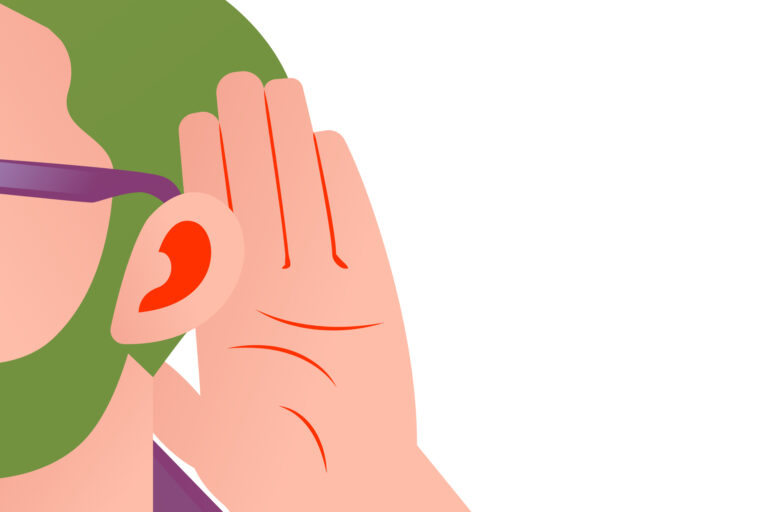
An award-winning journalist, Katie has written for Chicago Health since 2016 and currently serves as Editor-in-Chief.
Every year, more than 1 in 4 people over age 65 falls. And a fall can drastically change an older adult’s life in an instant.
Many factors contribute to a person’s fall risk: medications, health conditions, and senses. Even mild hearing loss, for example, triples a person’s fall risk, according to a study that analyzed people from ages 40 to 69.
“Hearing connects us to our environment, makes us aware of what’s around us,” says Allison Green, Aud. “We use multiple systems to maintain balance — vision, hearing, the feel of our feet on the ground. Being aware of what’s going on around you is going to help you feel more balanced and steady.”
Ronna Fisher, Aud, says the sounds around us help orient us. Fisher is owner of Hearing Health Center, which has multiple locations throughout the Chicago area. “If you ever take a yoga class and try to balance on one leg, your teacher will tell you to stare at one spot — an anchor,” Fisher says. “Stable sounds work the same way, as an auditory anchor, but you have to hear them.”
Yet, people tend to take their hearing ability for granted. “It’s not even included in your annual physical,” Fisher says. “Most people haven’t had their hearing tested since grade school.”
Fisher recommends everyone over 50 get a baseline hearing checkup. And regardless of your age, Green says that anyone experiencing hearing loss or balancing issues talk with their primary care doctor, who will work with you to find the root cause of the issue.








